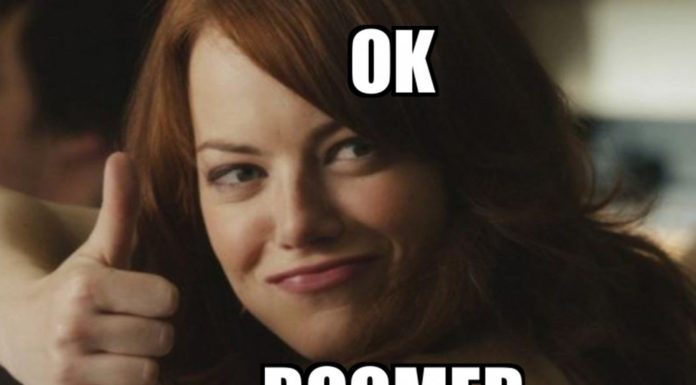(Bloomberg) Can saying “OK, boomer” at work constitute age discrimination? Inquiring minds, among them U.S. Supreme Court Chief Justice John Roberts, want to know.
While the jury’s out, workers might want to exercise caution when using this phrase around the office. But they shouldn’t be surprised if younger generations roll their eyes at the heightened concern.
What’s ‘OK, boomer’?
“OK, boomer” took off early last year as a snappy, youthful retort, especially online, to the concerns and concern-trolling of Americans born between 1946 and 1964, i.e. the postwar Baby Boom generation.
Like many things on the internet, subtlety and nuance are not exactly the point. Hand-wringing about so-called cancel culture? OK, boomer. Attributing the delayed life-markers of younger generations — home-purchasing, marriage, children and retirement savings — to personal failure rather than an inhospitable economic climate? OK, boomer. Feeling disrespected by kids saying “OK, boomer”? OK, boomer.
Where does ‘OK, boomer’ come from?
One examination found the first recorded use of the phrase on a Reddit post in 2009. It became popular a decade later when it was used in a TikTok clip that went viral. “OK, boomer” is a natural heir to “Old Economy Steven,” a 2012-vintage image macro that contrasted the lived experiences of boomers with those younger.
How’d it get to the Supreme Court?
The chief justice posed a hypothetical question during oral arguments Jan. 15 in a case in which a woman alleges the Department of Veterans Affairs denied her opportunities for promotion because of her gender and age. He asked: if someone says, “OK, boomer,” to a job applicant, would that be significant enough to show age discrimination?



